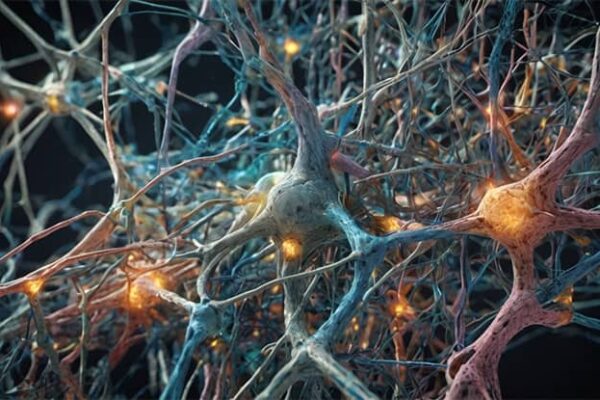Depression is a serious mental disorder that affects millions of people worldwide. According to data from the World Health Organization, depression is the leading cause of disability and significantly impacts a person’s physical and mental health. Symptoms of depression can range from prolonged feelings of sadness, hopelessness, and loss of interest in activities that once brought pleasure to disturbances in sleep and appetite, difficulties with concentration, low energy, low self-esteem, and, in some cases, suicidal thoughts.
It is important to understand that depression is not just a bad mood or temporary sadness. It is a serious illness that requires professional treatment and support. The good news is that depression can be overcome. With a comprehensive approach, including professional help, lifestyle changes, and self-help strategies, almost anyone can emerge from a depressive state.

Professional Help
The first and most important step in combating depression is seeking qualified psychological help. Consultation with a psychologist, psychotherapist or psychiatrist will help provide an accurate diagnosis and determine the severity of the depressive disorder. The specialist will also be able to identify factors contributing to the development of depression in a particular person, whether it be genetic predisposition, stressful life events, chemical imbalances in the brain, or a combination of these and other causes.
Based on the information gathered, an individual treatment plan will be developed, which may include psychotherapy, medication with antidepressants, or a combination of both. Antidepressants may be prescribed to regulate chemical imbalances in the brain and alleviate depression symptoms. However, it is important to understand that they are not “magic pills” and should be used in conjunction with lifestyle changes to achieve the best results.
Three types of psychotherapy are most commonly used to treat depression and have proven effective: cognitive-behavioral therapy (CBT), interpersonal therapy, and psychodynamic therapy.
- Cognitive-behavioral therapy (CBT) helps patients recognize and change negative thought patterns and distorted beliefs that contribute to the development and worsening of depression. During therapy, clients learn to replace irrational thoughts with more realistic and constructive ones, leading to an improvement in emotional well-being.
- Interpersonal therapy focuses on improving interpersonal relationships and communication, as problems in these areas are often triggers for depression. The therapist works with the client on developing healthy communication models and establishing supportive social connections. This helps reduce the feelings of isolation and loneliness typical of a depressive state.
- Psychodynamic therapy aims to explore unconscious conflicts, emotions, and behavioral patterns formed in childhood that may contribute to depressive symptoms in the present. Through in-depth work with a psychologist, the patient gains insight into the roots of their problems and finds more adaptive ways of thinking and behaving, freeing themselves from the burdens of the past.
It is extremely important to find a specialist with whom you can build a trusting and open relationship. Do not be afraid to ask questions, express your preferences, and state your expectations from therapy. A good psychologist will always listen attentively and adjust their approach to suit your individual needs.
Remember that the path to overcoming depression is an individual process, and the method that works for one person may not work for another. Some people notice improvements after just a few weeks of therapy, while others require more time and perhaps a combination of several therapeutic approaches. This is why it is so important to attend sessions regularly, follow psychological recommendations, and be patient.
During therapy, you may be given homework and exercises, such as keeping a journal, working with affirmations, and identifying and changing negative thought patterns. Regular practice of these methods will help integrate the skills and knowledge gained into everyday life, promoting a sustainable exit from depression and reducing the likelihood of relapses in the future.

Lifestyle Changes
In addition to professional help, making positive lifestyle changes also plays a key role in overcoming depression and maintaining mental health in the long term. A healthy, balanced diet, regular physical activity, quality sleep, and the elimination of harmful habits can significantly improve well-being and speed up the recovery process.
A diet rich in vegetables, fruits, whole grains, fish, and legumes provides the body with essential nutrients, vitamins, and minerals to support normal brain function and emotional balance. Some studies suggest that a balanced diet has a beneficial effect on depression symptoms.
- Antioxidants found in bright fruits and vegetables, such as strawberries, blueberries, spinach, and broccoli, help combat oxidative stress, which may contribute to the development of depression and other mental disorders.
- Omega-3 fatty acids, present in fatty fish, nuts, flaxseeds, and avocados, play an important role in maintaining healthy brain function, regulating inflammation, and improving cognitive functions.
- Probiotics, found in fermented foods like yogurt, kefir, and sauerkraut, support a healthy gut microbiome. Numerous studies point to a strong connection between gut health and brain function, so maintaining a healthy microbiome is an important factor in mood regulation and depression prevention.
- Vitamin D, mainly obtained from sunlight, is also linked to a lower risk of developing depression.
Regular physical activity of moderate intensity, such as walking, jogging, swimming, cycling, or yoga, also has numerous benefits for mental health. Exercise promotes the production of endorphins—”happiness hormones”—which improve mood and reduce symptoms of depression, anxiety, and stress. Additionally, physical activity stimulates the production of neurotrophic factors, which support the growth and restoration of brain cells, playing a crucial role in the prevention and treatment of depression.
Beyond the biochemical benefits, regular exercise also improves sleep quality, boosts energy and self-esteem, helps shed excess weight, and enhances self-perception—all of which are crucial when dealing with depression. It is recommended to choose activities that bring joy and motivation to exercise regularly. These could include dancing, swimming, hiking, gym workouts, or group fitness classes. The key is to find an activity that brings joy and is not associated with excessive stress or pressure.
Adequate quality sleep is one of the key factors in maintaining mental health. Chronic sleep deprivation can exacerbate depression symptoms, negatively affecting cognitive functions, emotional state, and the ability to cope with stress. Maintaining a regular sleep schedule, avoiding the use of electronic devices a few hours before bed, and creating a calm atmosphere in the bedroom help improve sleep quality and increase daytime energy levels. Additional methods, such as meditation before bed, a warm bath, or taking melatonin (after consulting a doctor), also positively affect sleep.
Moreover, it is crucial to completely avoid alcohol and drugs, which can worsen depression symptoms and create a vicious cycle of dependence. While for some people, alcohol and drugs may seem like temporary relief, they only mask the problem and significantly worsen depression in the long term, harming both physical and mental health.
It is important to remember that lifestyle changes take time, patience, and consistency. Do not expect instant results, but gradually integrate healthy habits into your daily routine. Support from loved ones and professionals will help you stay on the right track and overcome depression.

Social Support
Social isolation and alienation are often both causes and consequences of depression, creating a vicious cycle that can be extremely difficult to break alone. Therefore, it is essential to maintain contact with loved ones, develop new social connections, and seek emotional support. Interaction with friends and family can provide a sense of belonging, love, and understanding, which are crucial in fighting depression.
Don’t hesitate to speak openly about your condition with those you trust. While some people may not fully understand the nature of depression, most will be happy to offer empathy and support. Regular meetings with friends, shared activities, hobbies, and interests can help reduce feelings of loneliness and hopelessness, which are common in depression. Surround yourself with people who inspire and motivate you, while breaking off toxic relationships.
Joining support groups, where people with similar problems share their experiences, advice, and motivate each other on the road to recovery, can also be very helpful. Understanding that you are not alone in your struggle can be very encouraging and inspiring. Support groups provide insight into new strategies, resources, and methods that have helped others overcome depression.
For those who experience significant difficulties in establishing new social connections, consulting a psychologist can help develop communication skills, overcome social anxiety, and improve self-esteem. A specialist may use methods from social psychology, cognitive-behavioral therapy, role-playing games, confidence-building training, and stress management in social situations. Acquiring these skills is an important step in overcoming social isolation and building a supportive network of relationships.
Remember that building healthy social connections is a process that requires effort. But these efforts are well worth it when you create a circle of close people who empathize with you, inspire and support you on your path to recovery. Do not reject opportunities for communication and interaction — this can become one of the key factors in overcoming depression.

How to Overcome Depression on Your Own?
In addition to professional help, lifestyle changes, and social support, there are many effective self-help strategies that can complement the treatment process for depression and alleviate its symptoms. Regular practice of these methods helps develop skills to cope with negative emotions, thoughts, and situations that contribute to depression.
- Keeping a diary of emotions, thoughts, and daily events is one of the most common and useful self-help tools. Writing down your experiences helps to better understand internal processes, recognize triggers of depression, and track progress in recovery. Furthermore, the journal can become a valuable resource for discussing with a psychologist, allowing for deeper analysis of your condition.
- Meditation and yoga promote relaxation, reducing anxiety, stress, and worry, positively impacting emotional well-being during depression. Mindful breathing, focusing on the present moment, and letting go of intrusive thoughts and worries help achieve inner calm, mental clarity, and better emotional regulation. Regular meditation also contributes to developing self-awareness, acceptance, and self-compassion.
- Hobbies and interests that bring joy and a sense of creative fulfillment have numerous benefits for those suffering from depression. They help improve self-esteem, lift mood, and shift focus away from negative thoughts to positive emotions and activities. Resuming or discovering new creative activities, such as drawing, music, writing, crafting, or gardening, can serve as a source of inspiration and motivation on the road to recovery. Additionally, hobbies often provide opportunities to expand your social circle and share experiences with people who share your interests.
- Positive thinking and self-support are also important components in combating the negative thoughts and emotions typical of depression. Creating daily positive affirmations, focusing on your achievements, strengths, and qualities, and practicing self-compassion can gradually change negative thought patterns and improve self-perception. Be kind to yourself, avoiding excessive self-criticism and perfectionism, which only intensify depression.
- Progressive muscle relaxation, involving alternating tension and relaxation of various muscle groups in the body, helps to better recognize states of muscle tension and learn to release it purposefully, reducing stress levels.
- Visualization involves mentally imagining peaceful images, such as a serene beach, a green meadow, or a babbling brook. By immersing in these visual metaphors, a person can distract themselves from anxious thoughts and focus on relaxing sensations.
- Breathing techniques, such as diaphragmatic breathing, slow the heart rate and activate the parasympathetic nervous system, which helps reduce stress and anxiety during depressive episodes.
- Mindfulness practice involves consciously observing your thoughts, emotions, and bodily sensations without trying to judge or suppress them. This helps to better understand internal processes without being overwhelmed by them and respond with greater calm and objectivity to various life situations.
These emotional self-regulation techniques do not replace professional psychotherapy but are valuable additions to the main treatment course. Regular practice helps develop emotional management skills, build greater resilience to stress, and reduce the risk of depression relapse in the future.

Stress Management
Stress is one of the main risk factors for the development and exacerbation of depression. Therefore, it is extremely important to learn how to recognize stress triggers in your life and apply effective strategies to reduce and prevent it. You can start by keeping a journal of situations, thoughts, and emotions that cause the most stress and anxiety. This will help identify them more clearly.
After identifying the main sources and types of stress, you need to develop an individual action plan for managing them. This may include relaxation techniques from the previous section, as well as changes in lifestyle and approaches to problem-solving.
One key aspect is learning to manage your time rationally, set priorities, and delegate tasks. Chronic stress often arises from an inability to organize your life, being overloaded with responsibilities, and having unrealistic expectations. Learn to say “no” to additional commitments if your plate is already full. Prioritize tasks by importance and urgency, delegate what can be assigned to others. Strive to maintain a balance between work, personal life, and rest.
It is also important to identify and eliminate harmful habits and behavior patterns that exacerbate stress. These may include caffeine dependency, overindulgence in sweets or alcohol, smoking, unhealthy eating habits, lack of physical activity, and insufficient quality sleep. Replace these destructive patterns with healthier alternatives as described in the lifestyle changes section.
Find activities that promote mental and physical relaxation, such as reading, crafting, gardening, walking in nature, meditation, or taking a hot bath — anything that brings pleasure and peace. Incorporate these practices regularly, making them an integral part of your daily routine.
Additionally, it’s important to create a supportive environment around you. Set clear boundaries with people or situations that provoke excessive stress and negative emotions. Reduce communication with toxic individuals, and eliminate sources of unnecessary anxiety. Surround yourself with people who inspire, motivate, and support you — those who truly care about your well-being.
Remember that stress management is an ongoing process that requires constant attention and the application of different methods. Regularly reassess your life, identifying new areas of tension, and experiment with various strategies. Over time, this will become a way of life, helping maintain emotional balance and prevent depression relapses.

Accepting Your State
In the process of overcoming depression, it is crucial to approach your current emotional state with compassion and kindness. Depression can evoke strong negative feelings, ranging from guilt and shame to anger and despair. Struggling against them or trying to suppress them entirely often worsens the problem.
Try to acknowledge your emotions without judging or criticizing yourself for them. These feelings are a normal reaction to the difficult situation you’re facing. Observe your feelings with curiosity and compassion, as if they belonged to a close friend. Then, allow them to pass through you without clinging to them or fueling them with negative thoughts.
Acceptance also means letting go of guilt, societal expectations, and self-criticism, which can be intensified by depression. Set aside notions about how you “should” behave or feel. Instead, focus on accepting your current state.
Cultivate self-compassion — the ability to treat yourself with kindness, understanding, and empathy, rather than harsh criticism. Imagine how you would support a close friend or family member in a similar situation. Apply the same warm, caring approach to yourself. Forgive your weaknesses and shortcomings, remembering that no one is perfect.
Visualize your life free from depressive symptoms. Mentally picture yourself feeling happiness, energy, and purpose — these images will serve as a reminder of the ultimate goal of recovery and nurture hope.
Depression is a temporary condition, not a lifelong diagnosis. It does not define who you are. With the right help, support, and persistence, its symptoms can be significantly reduced or even fully eliminated. Keep this perspective and faith in yourself even in the darkest times.

Additional Recommendations
- Do not ignore physical symptoms. Depression can be linked to other medical conditions, such as hormonal imbalances, nutrient deficiencies, or chronic illnesses. Regularly undergo comprehensive medical check-ups.
- Consider consulting a family doctor. Sometimes the first step can be a visit to a primary care physician for an initial assessment and referral to appropriate specialists.
- Be cautious with online resources. Get information about depression only from reliable sources. Avoid unverified and potentially harmful advice on the internet.
- Experiment with different types of therapy. If one approach doesn’t work, try another method of psychotherapy or a combination of methods. What works for one person may not work for another.
- Pay attention to nutrition when taking antidepressants. Some medications can interact with certain foods or supplements. Consult your doctor about this.
- Try light therapy. Exposure to bright light may relieve symptoms of seasonal depression in some people.
- Consider alternative treatments. Many find relief through acupuncture, herbal therapy, aromatherapy, or other non-traditional approaches. But be sure to consult a specialist before using them.
- Build a strong support system. Close friends and family, support groups, and religious communities can all help prevent isolation during recovery.
- Be wary of temptations. Alcohol, drugs, and unhealthy food can worsen depression. Avoid these traps.
- Focus on small goals. Break your recovery journey into small, achievable steps. Celebrate each success as a victory.
- Be patient with yourself. Recovery is a process that takes time. Do not expect instant results and do not scold yourself for occasional setbacks.
- Involve loved ones in the process. Explain to your family and friends that depression is an illness, not a character flaw. Ask them for support and understanding.
- Maintain hope. There is always light at the end of the tunnel. With the right help and persistence, you can overcome depression.

Conclusion
Overcoming depression requires a comprehensive approach, patience, and perseverance. Professional help, lifestyle changes, social support, self-help strategies, and stress management all play a key role.
By taking a holistic approach and surrounding yourself with understanding and supportive people, you can gradually bring joy and meaning back into your life. The journey won’t be easy, but the ultimate goal — inner harmony and peace of mind — is worth it.
Don’t despair if progress seems slow. The road to recovery is unique for everyone, but you will get there. Stay resilient, focus on your well-being, believe in yourself, and don’t give up!
Recommended Reading
- “Cognitive Therapy of Depression” by Aaron T. Beck, A. John Rush, Brian F. Shaw, and Gary Emery. This book is considered a classic work in the field of cognitive therapy for depression. It explains the theoretical foundations of cognitive-behavioral therapy in detail and provides step-by-step strategies, exercises, and guidelines for overcoming the negative thoughts and behavioral patterns characteristic of depression.
- “The Feeling Good Handbook” by David D. Burns. This bestseller by psychiatrist David Burns offers a comprehensive approach to self-help for depression based on the principles of cognitive-behavioral therapy. It includes many practical tips and exercises for changing negative thoughts and destructive behavior patterns. Special attention is given to the importance of balanced nutrition, physical exercise, stress management, and building social connections.
- “Healing from Depression: 12 Weeks to a Better Mood” by Douglas Bloch. This book presents a 12-week program that combines the inspiring story of the author with a detailed guide to diagnosing and treating depression, offering new hope and practical strategies to anyone suffering from this debilitating condition.
- “Mind Over Mood: Change How You Feel by Changing the Way You Think” by Dennis Greenberger and Christine A. Padesky. This is a detailed guide for self-application of cognitive-behavioral therapy and rational-emotive-behavioral therapy methods for overcoming depression, anxiety, and other psychological issues.




